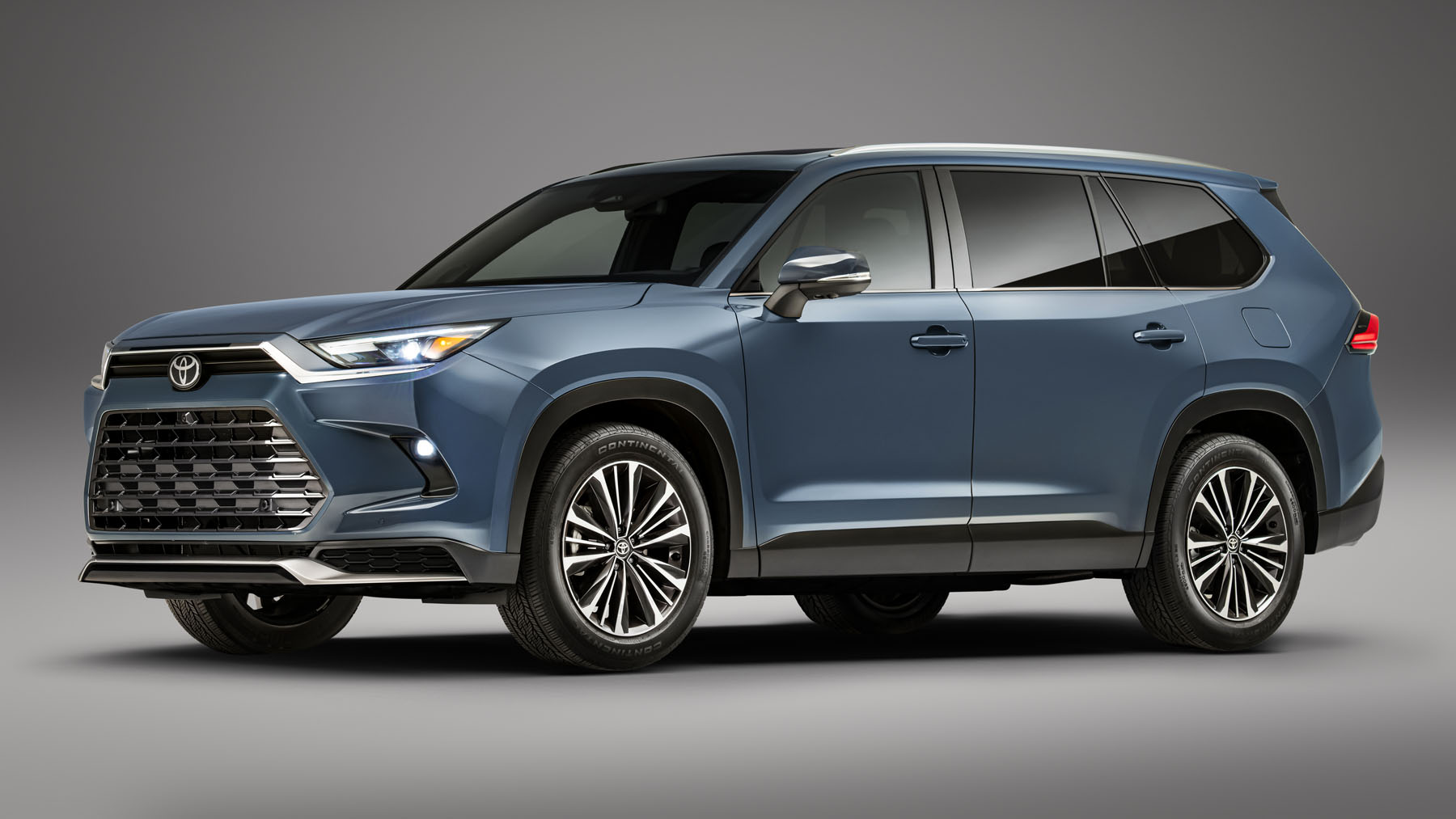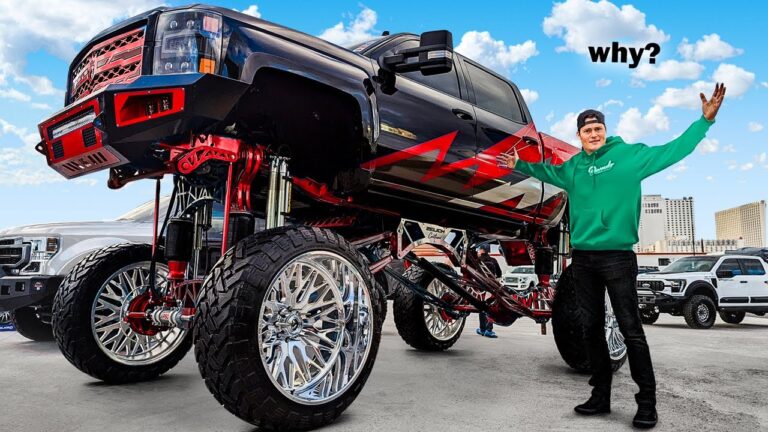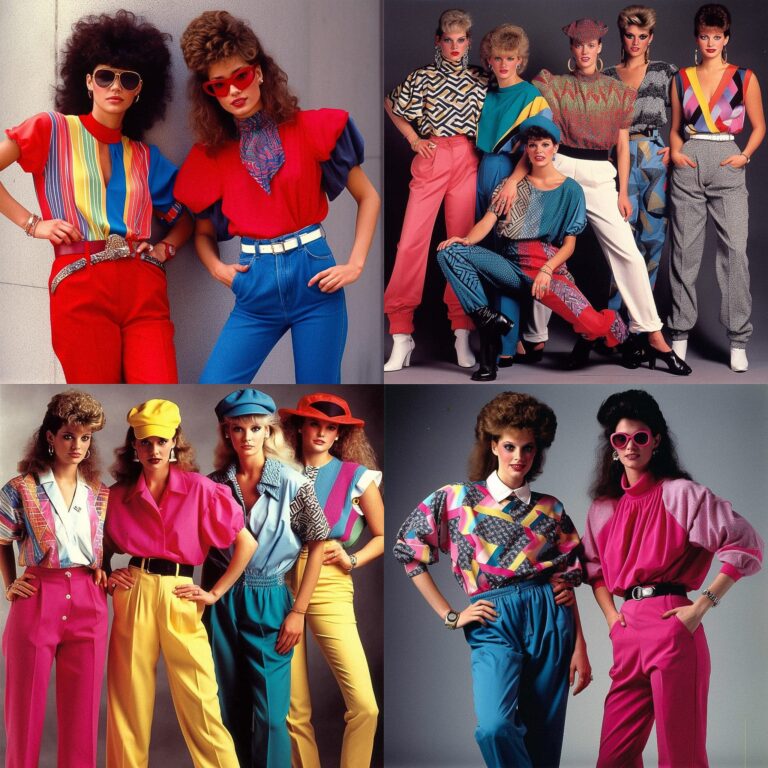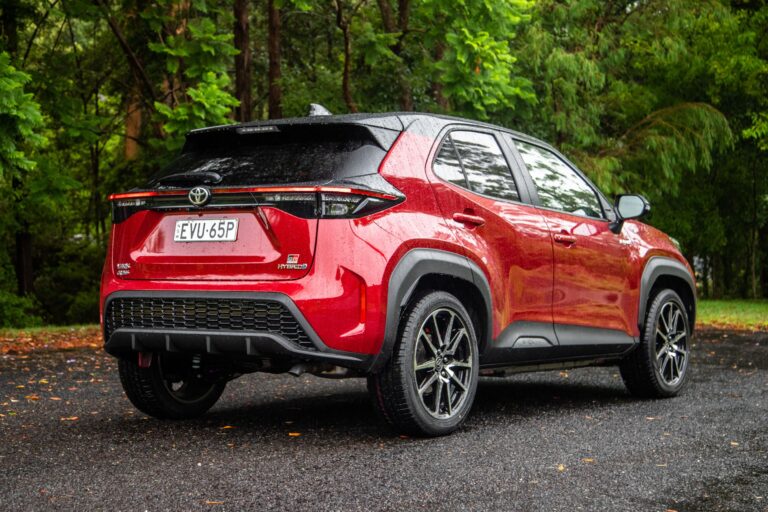Toyota Group Brands: Navigating the Global Automotive Juggernaut
Toyota Group Brands: Navigating the Global Automotive Juggernaut cars.truckstrend.com
An Engaging Introduction: The Global Powerhouse Behind the Wheel
When one thinks of Toyota, the immediate image is often that of reliable sedans, robust trucks, or innovative hybrid vehicles. However, the Toyota Motor Corporation is far more than just its namesake brand. It is a sprawling global conglomerate, a true automotive juggernaut, encompassing a diverse portfolio of brands that cater to a vast spectrum of consumer needs and market segments worldwide. Understanding the Toyota Group Brands is crucial for anyone seeking to grasp the full scope of its influence, from the personal vehicles we drive to the commercial trucks that transport goods and the compact cars that define urban mobility in many parts of the world.
Toyota Group Brands: Navigating the Global Automotive Juggernaut
This article will delve deep into the structure and philosophy of the Toyota Group, exploring its core brands, strategic alliances, the synergistic benefits of its multi-brand approach, and its unwavering commitment to innovation and quality. By the end, readers will have a comprehensive understanding of how Toyota has meticulously built and maintained its position as a leader in the global automotive industry, offering insights for consumers, investors, and industry enthusiasts alike.
The Pillars of the Toyota Group: A Brand Portfolio
The Toyota Group’s strength lies in its diversified brand portfolio, each serving a distinct purpose and market. While Toyota Motor Corporation is the parent company, its subsidiaries and strategic partners contribute significantly to its global footprint and innovation pipeline.
Toyota: The Benchmark of Reliability
The flagship brand, Toyota, is synonymous with Quality, Durability, and Reliability (QDR). For decades, it has been a global leader in sales volume, driven by a reputation for producing practical, fuel-efficient, and long-lasting vehicles. From the ubiquitous Corolla and Camry to the rugged RAV4 and Tacoma, Toyota offers a vast range of vehicles across sedans, SUVs, trucks, and minivans. It pioneered hybrid technology with the Prius and continues to lead in the development of sustainable mobility solutions, including hydrogen fuel cell electric vehicles (FCEVs) like the Mirai. Toyota’s brand identity is built on trust, value, and a commitment to customer satisfaction, making it a default choice for millions worldwide.
Lexus: Redefining Luxury and Performance
Launched in 1989, Lexus was Toyota’s ambitious foray into the luxury automotive market, directly challenging established European and American premium brands. It quickly gained acclaim for its exceptional build quality, refined interiors, unparalleled reliability, and outstanding customer service. Lexus vehicles blend sophisticated design with advanced technology and powerful, often hybrid, powertrains. From luxurious sedans like the ES and LS to performance-oriented coupes like the LC and versatile SUVs like the RX and GX, Lexus provides a premium experience that prioritizes comfort, quietness, and a seamless driving experience, all backed by Toyota’s engineering prowess.
Daihatsu: Masters of Compact Mobility

A long-standing subsidiary of Toyota, Daihatsu specializes in compact cars, particularly "kei cars" (light automobiles) in Japan, which are subject to specific size and engine displacement regulations. Daihatsu is a vital player in the Japanese domestic market and in several Southeast Asian countries, where its small, efficient, and affordable vehicles are perfectly suited for congested urban environments and specific economic conditions. Their focus on fuel efficiency, maneuverability, and clever packaging solutions makes them a leader in the compact segment, often serving as a testbed for new small-car technologies that might later be adapted by Toyota.
Hino Motors: Driving the World’s Commerce
Hino Motors is the commercial vehicle arm of the Toyota Group, specializing in the design and manufacture of trucks and buses. Hino is a dominant force in the medium and heavy-duty truck segments globally, particularly in Asia, and also produces a range of buses for public and private transport. Their vehicles are known for their robustness, fuel efficiency, and low operating costs, making them a preferred choice for logistics companies, construction firms, and public transport operators. Hino plays a critical role in global supply chains and infrastructure development, embodying Toyota’s commitment to industrial and commercial mobility.
Strategic Alliances: Expanding Reach and Innovation
Beyond its wholly-owned brands, Toyota has cultivated strategic alliances and holds significant stakes in other prominent automakers, fostering collaboration and shared innovation.
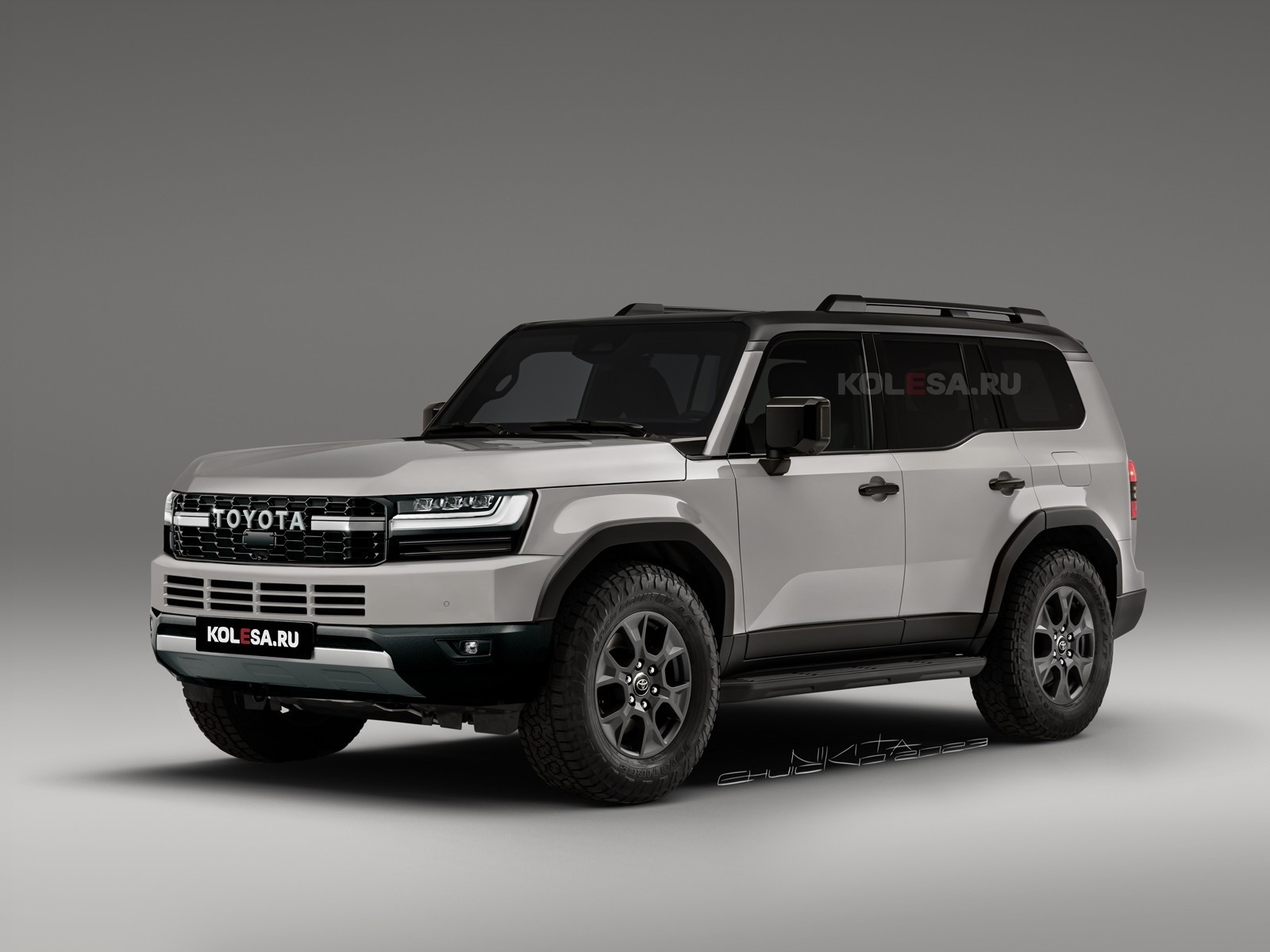
- Subaru: Toyota holds a significant minority stake in Subaru, leading to collaborations on various projects, most notably the jointly developed sports cars (Toyota GR86/Subaru BRZ). This partnership allows both companies to share technology, platforms, and manufacturing expertise, particularly in areas like all-wheel drive systems (Subaru’s specialty) and hybrid powertrains (Toyota’s strength).
- Mazda: Toyota and Mazda have forged a strong partnership, including cross-shareholding. This collaboration has led to shared manufacturing facilities in the U.S. and technology sharing, particularly in areas like internal combustion engine efficiency (Mazda’s Skyactiv technology) and electrification (Toyota’s hybrid expertise).
- Suzuki: More recently, Toyota and Suzuki announced a capital alliance to promote collaboration in areas like autonomous driving, electrification, and connected cars, particularly for emerging markets. This partnership leverages Suzuki’s strength in compact vehicles and motorcycles and Toyota’s advanced technologies.

These alliances demonstrate Toyota’s pragmatic approach to leveraging external expertise and expanding its market reach while mitigating development costs and risks.
The Synergy of Success: How the Group Operates
The multi-brand structure of the Toyota Group is not merely a collection of distinct entities; it’s a meticulously engineered ecosystem designed for synergy and efficiency.
Shared Resources and Platform Engineering
One of the most significant advantages of the group structure is the ability to share resources, particularly through common platforms and components. Toyota’s New Global Architecture (TNGA) is a prime example, providing a flexible modular platform that underpins a wide range of Toyota and Lexus vehicles, from compact cars to large SUVs. This approach reduces development costs, streamlines manufacturing processes, and allows for greater economies of scale, ultimately benefiting consumers through competitive pricing and consistent quality.
Diversified Market Presence and Risk Mitigation
With brands catering to different segments (mainstream, luxury, compact, commercial) and diverse geographical markets, the Toyota Group is exceptionally resilient to economic fluctuations or shifts in consumer preferences in any single segment or region. If one market slows down, another might be booming, providing stability to the overall group.
Technological Cross-Pollination
Innovation doesn’t happen in silos within the Toyota Group. Technologies developed by one brand, such as hybrid powertrains from Toyota, can be adapted and refined for Lexus vehicles. Daihatsu’s expertise in compact car packaging can inform Toyota’s small car development, while Hino’s commercial vehicle insights can contribute to Toyota’s robust truck platforms. This continuous exchange of knowledge and technology accelerates development and ensures that the entire group benefits from cutting-edge advancements.
Beyond the Cars: Toyota’s Core Principles and Future Vision
Toyota’s success is rooted in its foundational principles and a forward-looking vision that extends beyond just building cars.
The Toyota Production System (TPS) and Quality Focus
The legendary Toyota Production System (TPS), with its emphasis on "Just-in-Time" manufacturing and "Jidoka" (automation with a human touch), is the backbone of the group’s efficiency and quality. This philosophy of continuous improvement (Kaizen) and waste elimination permeates every aspect of operations across all brands, ensuring consistent, high-quality output and operational excellence. This unwavering commitment to QDR is a hallmark of every vehicle produced under the Toyota umbrella.
Leadership in Sustainable Mobility (Hybrid, EV, FCEV)
Toyota has long been a pioneer in sustainable mobility, particularly with its leadership in hybrid technology. While some critics argue about its slower adoption of pure Battery Electric Vehicles (BEVs), Toyota is pursuing a multi-pathway strategy, investing heavily in hybrids, plug-in hybrids (PHEVs), FCEVs, and gradually expanding its BEV lineup. This diversified approach aims to offer the most suitable sustainable solution for various global energy infrastructures and consumer needs, ensuring long-term relevance in a rapidly evolving automotive landscape.
Investing in the Future: Mobility Solutions and Smart Cities
Toyota is not just an automaker; it envisions itself as a "mobility company." This broader vision includes developing autonomous driving technologies, connected car services, and even smart city concepts like the "Woven City" – a prototype community designed to test future mobility solutions in a real-world environment. This holistic approach to mobility underscores Toyota’s ambition to shape the future of transportation and urban living.
Navigating the Options: Practical Advice for Consumers
For consumers, understanding the Toyota Group Brands can significantly aid in making an informed purchase decision.
- Identifying Your Needs: Budget, Lifestyle, and Priorities:
- Budget-Conscious & Reliable: A Toyota model (e.g., Corolla, Camry, RAV4) is likely your best bet, offering excellent value, fuel efficiency, and long-term durability.
- Luxury & Refinement: Lexus provides a premium experience with exceptional comfort, advanced features, and top-tier customer service, often with the added benefit of Toyota’s reliability.
- Compact & Urban: In markets where available, a Daihatsu might be perfect for tight city spaces, offering maneuverability and affordability.
- Commercial Use: Hino is the clear choice for businesses needing robust and reliable trucks or buses.
- Understanding Brand Philosophies: While all benefit from Toyota’s QDR principles, each brand has a distinct personality. Toyota is pragmatic, Lexus is refined, Daihatsu is clever and compact, and Hino is rugged and dependable. Consider which philosophy aligns best with your personal values and driving style.
- Making an Informed Decision: Research specific models within each brand. Read reviews, compare features, and test drive vehicles that fit your criteria. Remember that even with shared platforms, each brand tunes its vehicles differently to suit its target audience. Leverage the shared reliability and engineering, but choose the brand that best speaks to your individual needs and aspirations.
Comprehensive Overview of Toyota Group Brands
To further clarify the distinct offerings, here’s a summary of the core brands and their primary focus:
| Brand Name | Primary Focus / Specialization | Target Market / Niche | Key Characteristics | Typical Price Segment |
|---|---|---|---|---|
| Toyota | Passenger cars, SUVs, trucks, minivans; Hybrid technology leader | Global mainstream market, families, commuters, commercial fleets | Reliability, Durability, Value, Fuel Efficiency, Practicality, Broad Range | Mainstream to Upper-Mainstream |
| Lexus | Luxury sedans, coupes, SUVs; Performance and refinement | Affluent consumers seeking premium experience, comfort, advanced features | Luxury, Refinement, Quietness, High Build Quality, Excellent Customer Service, Performance | Premium to Luxury |
| Daihatsu | Compact cars, Kei cars, small SUVs | Japan (Kei cars), Southeast Asia; Urban dwellers, budget-conscious buyers | Affordability, Fuel Efficiency, Maneuverability, Clever Packaging, Compact Size | Entry-level to Mainstream (Compact) |
| Hino Motors | Medium-duty and Heavy-duty Trucks, Buses | Commercial businesses, logistics, construction, public transport | Robustness, Reliability, Fuel Efficiency, Low Operating Costs, Durability | Commercial (Truck/Bus) |
| Subaru | All-wheel drive passenger cars, SUVs (Toyota partial stake) | Enthusiasts, families seeking AWD capability, safety-conscious buyers | Symmetrical AWD, Boxer Engines, Safety, Outdoor Lifestyle, Driver Engagement | Upper-Mainstream to Premium |
| Mazda | Passenger cars, SUVs (Toyota collaboration) | Drivers seeking engaging dynamics, premium design, efficient engines | Driving Dynamics, Stylish Design, Fuel Efficiency (Skyactiv), Quality Interior | Upper-Mainstream to Premium |
| Suzuki | Compact cars, motorcycles (Toyota collaboration) | Emerging markets, budget-conscious buyers, urban dwellers, compact SUV demand | Affordability, Compact Size, Fuel Efficiency, Practicality | Entry-level to Mainstream (Compact) |
Note: Price segments are general categorizations and can vary significantly by model, market, and trim level.
Frequently Asked Questions (FAQ)
Q1: Is Toyota the largest automaker in the world?
A1: Toyota Motor Corporation frequently contends for the top spot in global vehicle sales by volume, often trading places with other major groups like Volkswagen. It consistently ranks among the largest.
Q2: Does Toyota own Lexus?
A2: Yes, Lexus is the luxury division of Toyota Motor Corporation, established by Toyota in 1989.
Q3: What is Daihatsu known for?
A3: Daihatsu is primarily known for its expertise in manufacturing small, fuel-efficient compact cars and "kei cars," particularly popular in Japan and Southeast Asia.
Q4: Why does Toyota collaborate with companies like Subaru, Mazda, and Suzuki?
A4: These collaborations allow Toyota to share technology, platforms, and manufacturing resources, reducing development costs, diversifying product offerings, and expanding market reach. It also enables them to leverage specific expertise from partners (e.g., Subaru’s AWD, Mazda’s engine efficiency).
Q5: What is Toyota’s strategy for electric vehicles (EVs)?
A5: Toyota is pursuing a multi-pathway strategy for electrification, investing in various technologies including hybrids (HEV), plug-in hybrids (PHEV), battery electric vehicles (BEV), and hydrogen fuel cell electric vehicles (FCEV), aiming to offer diverse solutions based on regional energy infrastructures and consumer needs.
Q6: Are Toyota and Lexus cars built on the same platforms?
A6: Yes, many Toyota and Lexus vehicles utilize common modular platforms, such as the Toyota New Global Architecture (TNGA), which allows for shared components and manufacturing efficiencies while still enabling distinct brand identities and driving dynamics.
Conclusion: A Legacy of Innovation and a Future of Mobility
The Toyota Group Brands represent more than just individual car companies; they embody a cohesive strategy of diversified strength, relentless innovation, and an unwavering commitment to quality. From the core reliability of Toyota to the refined luxury of Lexus, the compact brilliance of Daihatsu, and the commercial might of Hino, the group covers an expansive range of mobility needs. Its strategic alliances further amplify its reach and technological prowess, positioning it uniquely in the evolving automotive landscape.
By understanding the interconnectedness and distinct contributions of each brand within the Toyota Group, consumers can make more informed decisions, and industry observers can appreciate the sheer scale and strategic depth of one of the world’s most influential corporations. Toyota’s legacy is built on a foundation of excellence, and its future is poised to redefine what it means to be a global mobility provider, ensuring that its brands continue to drive progress for generations to come.
